15 Jul2019
By Jane E. West

Congress came back to Washington this week with a boatload of work to do in the short few weeks before the next recess, in August. It could be a long hot summer.
First up: Budget and Funding
When Congress left for July 4 recess, the House had passed almost all of the 12 required funding bills and the Senate had not begun with any of the 12 bills. September 30 marks the end of the fiscal year; without the new spending bills signed into law, a government shutdown will be in the offing. With Congress scheduled to be in recess most of August, the pressure is on.
The holdup is the budget—or the overall spending cap, which the House, the Senate, and the White House must agree to pass. While the House adopted its own budget caps, they are higher than those that the Senate or the White House will accept. Added to the mix is the pending need to raise the debt ceiling (this is the borrowing limit for the federal government, which routinely needs to be raised to avoid default). Thus, the pressure is on from three corners: budget, FY 2020 funding bills, and debt ceiling. These three dire needs are in the mix together and there is an effort to wrap their resolution into one package—possibly before the August recess. Learn more.
Senate Confirms New Higher Education Leader for Department of Education
11 Jul2019
By Jerrica Thurman
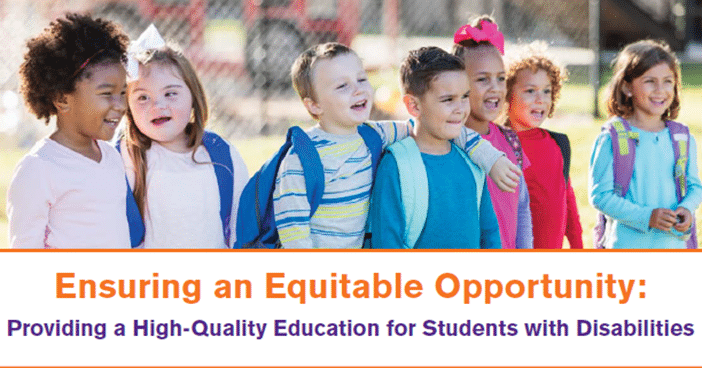
The Council of Chief State School Officers (CCSSO) recently released Ensuring an Equitable Opportunity: Providing a High-Quality Education for Students with Disabilities, a report that details policy and practice considerations around individualized education plans chiefs and state education leaders can reflect upon and implement in ensuring all students, especially students with disabilities, have access to a high-quality education. Students with disabilities are provided with an individualized education program (IEP) to ensure they receive specially-designed instruction and related services. The IEP is the primary mechanism for ensuring students with disabilities receive the right educational content and rigor at the right moment in their education.
The Education for All Handicapped Children Act of 1975 marked an historic win for civil rights when the doors to public education were opened for all students. For the first time, children with disabilities had access to a public education and the hope of a productive and fulfilling future. Today, the Individuals with Disabilities Education Act of 2004 (IDEA), the most recent iteration of that law, aims to deliver on that promise; namely, that all students with disabilities have equitable access to a free appropriate public education (FAPE) in the least restrictive environment.
01 Jul2019
By Katrina Norfleet
AACTE board member Donald Easton-Brooks is widely known as a scholar of educational policy and culturally responsive teaching. This year, he released his book Ethnic Matching: Academic Success of Students of Color. In a recent Q&A with AACTE President and CEO Lynn M. Gangone, Easton-Brooks talked about the book and how his research shows diversifying the teaching profession will ultimately improve student’s success. The following summary highlights the conversation.
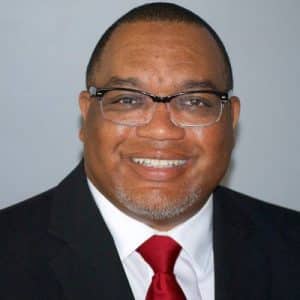 How would you describe the concept of ethnic matching and its importance to student learning?
How would you describe the concept of ethnic matching and its importance to student learning?
What ethnic matching initially suggests is that teachers of color can play a significant role in enhancing the academic experience of students of color. As this research and other research progress, findings have shown that teachers of color can play a significant role in also enhancing the academic experience of white students and can assist in enhancing a more culturally responsive profession as a whole. Therefore, the concept and research related to the concept suggest that we need to diversify teacher education. Mainly because as our communities are becoming more diverse, we are seeing our public schools also becoming more diverse. Yet what is happening is that our educator profession is not growing at a similar rate as these communities of students. The research around the concepts shows that perceived knowledge or knowledge from a preceptive culturally lens can play a role in students’ understanding of concepts, learning, and processing of information. This often can lead to these students being misinterpreted by teachers and feeling somehow misunderstood by teachers if they do not have that cultural lens to understand them. That is what teachers of color can bring to the table that can be of assistance to educational systems.
28 Jun2019
By Jerrica Thurman
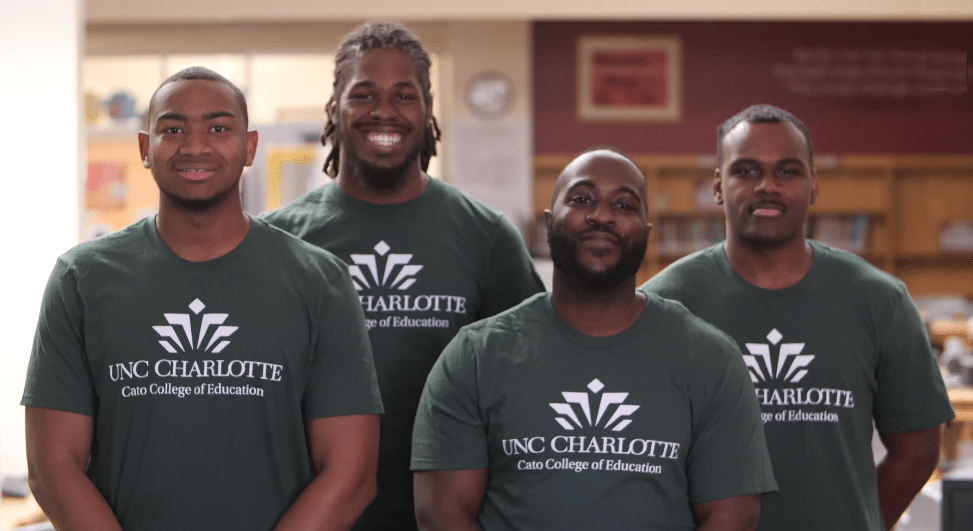
AACTE member institution Cato College of Education at the University of North Carolina at Charlotte (UNCC) works to create effective solutions to the shortage of Black male teachers. Thomas Fisher, supervisor of student teaching in the Office of School and Community Partnerships, recruited four of his former students to help implement a program to engage and recruit Black male students into the teaching profession. The team visits schools and shares their story to inspire a new generation of educators in the most underrepresented demographic in teaching.
“There’s only 2% Black male teachers in the United States,” says Timothy Wells, social studies teacher at Ridge Road Middle School, who is featured in the “What’s Your Impact?” video. “Studies show that your success increases if you have a Black male teacher or a male teacher in general from an early age.” The video spotlights Black male graduates of UNC’s Cato College of Education as they share why they pursued a teaching career. It also includes Edwin Campbell, American history teacher at Vance High School; Devin Murphy, math teacher at Myers Park High School; and Dwayne Simmons, English teacher and dean of students at Quail Hollow Middle School. Please take a few minutes to watch the video above to hear the dynamic stories of these educators.
25 Jun2019
By The Virgin Islands Consortium
This article and photo originally appeared in The Virgin Islands Consortium and is reprinted with permission.
The University of the Virgin Islands on Monday launched an Inclusive Childcare Laboratory and Diagnostic Center on the St. Thomas Campus. According a release the institution of higher learning issued, the new facility is intended to enhance the educational experience of preservice teachers who will be supervised by professors as part of their studies—while supporting the university’s students and employees to better manage the challenges of balancing parenthood and college life. UVI will be among the first Historically Black Colleges and Universities to provide this service.
The establishment of a research-based childcare program linked to early childhood and the School of Education has been a goal of UVI President David Hall’s since 2014. “This idea has evolved over the years and it’s no longer just a place to care for our students’ children, but an opportunity to create a model early education center that can help enhance the quality of early childhood education throughout the Virgin Islands,” Mr. Hall said. “The significance of this project is now more transformative than our students imagined.”
As many as 30 children can be admitted at the center at a time. The center is open for children between ages two to eleven. Initially, the center will be operational from 3 p.m. to 10 p.m. However, it is expected to evolve from an after school to full-day childcare center, according to the university.
The idea for the childcare center arose from a survey of UVI students, staff and faculty who emphasized the need for such a facility on campus. “The University’s ability to address this critical need indicates that we listen to our students and we strive to address their needs,” Mr. Hall said.
24 Jun2019
By Carla Roberson
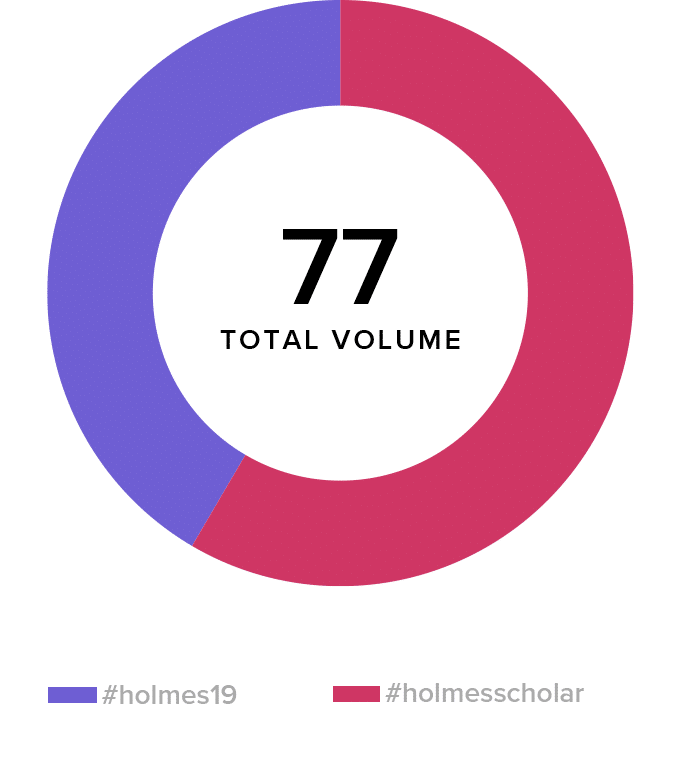
AACTE’s Holmes Scholars were busy on Twitter advocating for education policy issues using their hashtags #HolmesScholar and #Holmes19 during Washington Week this month. The students learned how to elevate their voices and research to positively impact future policies for students of color and other marginalized groups during the Holmes Summer Policy Institute, June 3. They wasted little time in implementing these best practices throughout the week’s events particularly during their participation in AACTE’s Day on the Hill. From Facebook Live interviews to Twitter posts, the Holmes Scholars made their voices heard on why it is important for education students to play an active role in advocating for the teaching profession.
The Holmes Scholars have also turned to social media to grow their community and to stay connected year round. You can follow the AACTE Holmes Program on Facebook, on Instagram at @aacteholmesscholars, and on Twitter at @HolmesScholars, and follow the hashtags: #OnceAScholarAlwaysAScholar, #HolmesScholar, and #Holmes19.
12 Jun2019
By Gretchen Wright
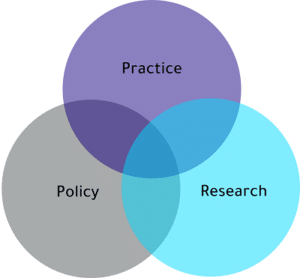 Research shows that teachers are the number one in-school factor affecting student outcomes and principals are the number two factor. One important metric for those outcomes is how well and how equitably our nation’s diverse students are able to navigate our increasingly global and technologically complex world, where skills like critical thinking, collaboration, communication, and being able to apply knowledge in a range of contexts are crucial to success. Today, Learning Policy Institute and Bank Street Graduate School of Education have announced the launch of the Educator Preparation Laboratory (EdPrepLab), a new initiative to help educator preparation programs ensure that new teachers and leaders are able to provide all k-12 students with the kind of deeper learning that helps them develop those skills.
Research shows that teachers are the number one in-school factor affecting student outcomes and principals are the number two factor. One important metric for those outcomes is how well and how equitably our nation’s diverse students are able to navigate our increasingly global and technologically complex world, where skills like critical thinking, collaboration, communication, and being able to apply knowledge in a range of contexts are crucial to success. Today, Learning Policy Institute and Bank Street Graduate School of Education have announced the launch of the Educator Preparation Laboratory (EdPrepLab), a new initiative to help educator preparation programs ensure that new teachers and leaders are able to provide all k-12 students with the kind of deeper learning that helps them develop those skills.
EdPrepLab brings together 15 of the nation’s leading teacher and principal preparation programs to collaborate on further developing and documenting models for preparation that equip educators to advance deeper learning and equity, and that can inform other programs across the nation. The initiative will also support research to improve preparation programs and work with policymakers at federal, state, and local levels to help leverage policies that encourage the use of research-based practices that ensure new teachers and school leaders are well-equipped to provide deeper learning and to build the next generation of equitable schools and instructional education practices.
“Our world has changed significantly since the U.S. education system was first developed, and students today need an education that supports and prepares them for that more diverse, technology-driven, knowledge-based society,” said Learning Policy Institute President Linda Darling-Hammond. “That means we need to prepare teachers and school leaders to provide this kind of education. Fortunately, we have research to guide the way. There is a wealth of new knowledge about the science of learning and development, how social and emotional skills support academic learning, and how to ensure that students really understand what they have learned.”
10 Jun2019
By University of Tennessee News

This article and photo originally appeared on the University of Tennessee News website and are reprinted with permission.
A new program aimed at increasing the number of licensed teachers from diverse backgrounds will launch this summer in the College of Education, Health, and Human Sciences.
The program, Increasing Teacher Equity to Address Community High Needs (I-TEACH), is funded by a Tennessee Higher Education Commission grant recently awarded to the college to support diversity in education and to fill critical teaching shortages across the state. The two-year program supports 12 eligible teacher candidates for 33 hours of coursework and clinical practice. Candidates who complete the program will graduate with a master’s degree in teacher education.
24 May2019
By Jerrica Thurman
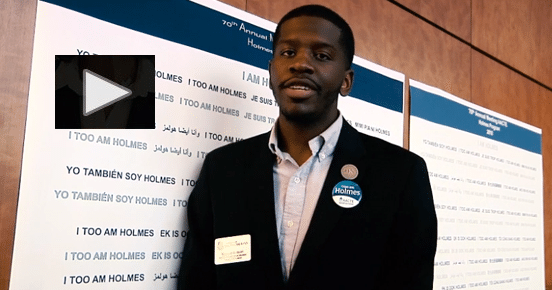
In this latest video entitled, “I am Holmes Too,” Holmes coordinators and students discuss the value of the AACTE Holmes Program, which focuses on recruiting educators of color into the teaching profession. They share how the program supports their work, research, and advocacy efforts in educator preparation.
Here’s what a few of the participants had to say:
“I would like to say thank you to Holmes for being a great support system throughout my academic journey.” – Jerraco Johnson, Auburn University
“One thing I appreciate about being part of Holmes is it provides the opportunity to learn and grow from others as well as provide me with research opportunities.” – Talisa Jackson, George Mason University
21 May2019
By Brandon R.T. Frost
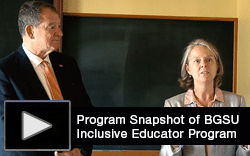 AACTE is excited to share the latest videos of its Research-to-Practice Spotlight Series on Special Education this spring. The video interviews feature faculty, students, and school district leaders who work with Portland State University (Portland, OR) and Bowling Green State University (Bowling Green, OH) to implement extensive clinical preparation for teacher candidates pursuing careers in general and special education. The link to view the video series is now available!
AACTE is excited to share the latest videos of its Research-to-Practice Spotlight Series on Special Education this spring. The video interviews feature faculty, students, and school district leaders who work with Portland State University (Portland, OR) and Bowling Green State University (Bowling Green, OH) to implement extensive clinical preparation for teacher candidates pursuing careers in general and special education. The link to view the video series is now available!
In my recent blog post, I shared a brief introduction to the new Research-to-Practice Spotlight Series. The videos highlight exemplary practices of the two teacher preparation programs for ensuring their candidates are ready to work with all students, including students with disabilities. Though different in many programmatic elements to address their local contexts, each university designed their programs to equip all teachers with the skills necessary to instruct the diverse needs of their student population.
The Master’s Program in Secondary Dual Education at Portland State University features dual certification in both general and special education at the secondary level. Entrants to the program come with an undergraduate degree in a content area and engage in two years of extensive and increasing involvement in clinical settings in secondary schools. Principals consider the program transformative in terms of the skills graduates bring to their classrooms.
20 May2019
By Jane E. West
This blog post is written by AACTE consultant Jane West and is intended to provide update information. The views expressed in this post do not necessarily reflect the views of AACTE.
Today marks the 65th Anniversary of the Brown vs. Board of Education Supreme Court landmark decision that established the principle that separate is not equal. How far have we come? Much to contemplate here. You will see below that a House education panel spoke loud and clear on that topic: we have a long way to go.
- Trump Proposes Taking More Funds from Pell Grants – to Fund Moonshot? Huh?
This week President Trump submitted to Congress some revisions to his original budget request. Notably, he took back the proposed cut he originally made for Special Olympics (after great bipartisan outrage); but he also added a new cut in the form of an additional $1.9 billion to the Pell grant surplus. It appears that the Pell cut would go toward funding the President’s proposed 2024 NASA moonshot! Education advocates were outraged. As Jon Fansmith of the American Council on Education put it: “Do I want to make college more expensive to fund space travel to the moon and Mars?” Hmmmm …
The President had already requested a $2 billion cut in Pell funding. So the total $3.9 billion recission would result in the Pell surplus being exhausted by 2022! This request is likely to be ignored on Capitol Hill, as no one—Republican or Democrat—ever really contemplated cutting Special Olympics. And while the Pell Surplus has been modestly raided in the past, a $3.9 billion cut is highly unlikely.
15 May2019
By JTE Insider

Read the latest JTE Insider blog interview by the Journal of Teacher Education (JTE) editorial team. This blog is available to the public, and AACTE members have free access to the articles in the JTE online archives—just log in with your AACTE profile.
This interview features insights from the article “Measuring Teaching Quality of Secondary Mathematics and Science Residents: A Classroom Observation Framework” by Imelda Nava, Jaime Park, Danny Dockterman, Jarod Kawasaki, Jon Schweig, Karen Hunter Quartz, and José Felipe Martínez. The article was published in the March/April 2019 issue of the Journal of Teacher Education.
08 May2019
By Erica D. McCray

The CEEDAR Center will present Culturally responsive education: A course enhancement module (CEM) designed to ensure every educator meets the needs of each learner on Tuesday, May 21, 1:00 p.m. (ET). Registration is now open.
The CEEDAR Center, an OSEP-funded technical assistance center is proud to collaborate with national organizations, technical assistance centers, and stakeholders across the country to ensure that every student with a disability has an equitable opportunity to achieve. Teacher and leader development through policy, preparation, and program improvement is central to our mission. Our partnership with AACTE provides an opportunity to support AACTE’s strategic focus on Diversity, Equity, and Inclusion.
06 May2019
By JTE Insider

Read the latest JTE Insider blog interview by the Journal of Teacher Education (JTE) editorial team. This blog is available to the public, and AACTE members have free access to the articles in the JTE online archives—just log in with your AACTE profile.
This interview features insights from Melanie M. Acosta, author of the JTE article “The Paradox of Pedagogical Excellence Among Exemplary Black Women Educators.” The article is published in the Jan/Feb 2019 issue of the Journal of Teacher Education.
Q1. What motivated you to pursue this particular research topic?
I was compelled to study the professional experiences of exceptional Black women educators for many reasons. One of the most important reasons was related to my own positionality as a Black woman educator with a record of success in teaching. Another crucial reason I wanted to pursue research on Black women educator professional experiences was related to expanding and complicating the dialogue on diversifying the teaching force to focus on issues affecting Black teacher retention, which includes teachers’ positionalities and the treatment of Black women educators in schools.
19 Apr2019
By Linda Minor
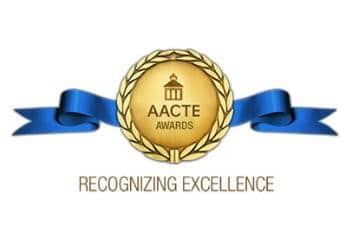
Applications for the 2020 AACTE awards are now open on AACTE’s online submission site. Entries for the Outstanding Book Award are due May 16 and entries for the Outstanding Dissertation Award are due August 20. All other award submissions are due October 9.
This is the 24th year AACTE’s awards program has been recognizing member institutions’ exemplary programs as well as individuals who have made noteworthy contributions to education preparation. For an overview of the 2019 award winners, see this press release.












 Research shows that teachers are the number one in-school factor affecting student outcomes and principals are the number two factor. One important metric for those outcomes is how well and how equitably our nation’s diverse students are able to navigate our increasingly global and technologically complex world, where skills like critical thinking, collaboration, communication, and being able to apply knowledge in a range of contexts are crucial to success. Today, Learning Policy Institute and Bank Street Graduate School of Education have announced the launch of the
Research shows that teachers are the number one in-school factor affecting student outcomes and principals are the number two factor. One important metric for those outcomes is how well and how equitably our nation’s diverse students are able to navigate our increasingly global and technologically complex world, where skills like critical thinking, collaboration, communication, and being able to apply knowledge in a range of contexts are crucial to success. Today, Learning Policy Institute and Bank Street Graduate School of Education have announced the launch of the 




